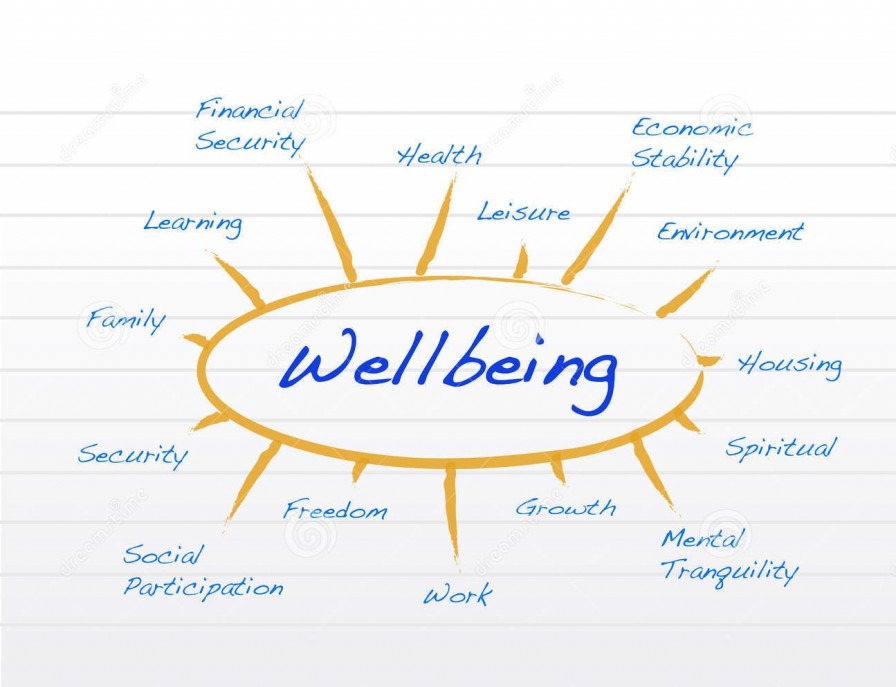You are here:
Organisational Wellbeing Empower Hour Sessions - Reflections

Youth Music ran two Empower Hour sessions on the topic of Organisational Wellbeing with Nicola Burke and Mahalla Burn.
We have written up some bullet point summary notes and there are some useful resources at the end too.
Session 1 - Introduction
Below are some key points from our first wellbeing session:
- Dictionary search of wellbeing “the state of feeling healthy and happy”.
- What can contribute to wellbeing in the workplace: Respect, Perspective taking, Being non-judgmental, Enabling voices to be truly heard, Creating a culture of listening.
- “We have two ears and one mouth so that we can listen twice as much as we speak”.
- Reflection activity – Activity involved reflecting on someone in your childhood who made you feel valued – why was this?
- Different levels of listening: Ignoring, Pretending, Selective listening, Attentive listening, Empathic listening.
- Empathic Listening – “Empathic listening is so powerful because it gives you accurate data to work with. Instead of projecting your own autobiography and assuming thoughts, feelings, motives and interpretation, you’re dealing with the reality inside another person’s head and heart. You’re listening to understand. You’re focused on receiving the deep communication of another human soul.”
- “I’ve learned that people will forget what you said, people will forget what you did, but people will never forget how you made them feel.” – Maya Angelou.
- Spoke about what wellbeing actually is and visualised it using a multi-dimensional ‘sun diagram’ as shown in the image on this blog post. Wellbeing is a fine balance, and different for every person.
- Mahalla broke down the word well being. Well? Being? When our being and selves are well, it’s usually because we have a healthy balance of everything that makes us feel good and mentally and physically well.
- What does it actually look like when you're achieving wellbeing? What does it often look like day-to-day when you're not quite there? Why is it so hard to maintain your wellbeing?
- How can we address disabling culture?
- These are Mahalla's presentation slides.
Session 2 - Wellbeing Action Plans
Below are some key points from our second wellbeing session:
- One really practical way to keep wellbeing on the agenda is through the use of wellbeing action plans. These plans are a way of opening up conversations and having practical measures in place to support an individual’s wellbeing. They help people reflect on what helps them to stay mentally healthy at work, and enable managers to be proactive in meeting people’s wellbeing needs.
- Discussed the role of directors and the role of modelling wellbeing.
- Wellbeing action plan – should be a live document used to communicate with people across work. Action plan to actually putting it into real practice.
- Rules can be compared to walls that keep people out, boundaries show people where the door is.
- Our whole lives have changed since the Coronavirus pandemic – we’re still adapting. Everyone has different lived experiences of mental health, some people have been stigmatised. It’s something to be offered – not maid compulsory.
- Feeling isolated can be one of the biggest reasons people feel unhappy and disconnected in their jobs.
- There are different wellness action plans for different surroundings – see Mind website.
- Mental Health First Aid Training – they provide lots of resources around reflecting on your own wellbeing. Provide to all staff so everyone is at the same level of understanding.
- Where reasonable adjustments and wellbeing meets feels like a grey area at the moment. One participant felt it’s mostly goodwill, rather than a legal obligation. There is no law that makes people be nice to each other!
- Believe people if they say they have a disability – you don’t always need to ask for a formal doctor’s note.
- Do adjustments at interview and application stage to be able to deal with these things immediately and also to show that we take these things seriously.
- Going from an action plan to 'practicing well' is so challenging. Working within healthcare, supporting the wellbeing of musicians facilitating practice is naturally part of every day practice (more than once a day!). It's that which needs to be sustained (and what we have fought with over the past two years).
- Spoke about the difference between sessional/freelance workers. Lack of support for freelancers.
- Partly about 'scheduling' it - building wellbeing support into paid working time. You need people to budget and create capacity for this work
- If we have training for freelancers, we pay them for their time and their course fees and we get that funded within project costs.
- We have made sure we turn off our work emails on our phones over the weekend so we have a proper break and we try and have a half hour break for lunch without work distractions.
- Asserting boundaries in a workplace can be really difficult even if people are supportive.
- Reflect on what triggers stress levels and pressure. Check in with yourself throughout the day, e.g. ask yourself how am I feeling in the morning, at lunch, afternoon etc.
Resources recommended in the session
Arts & Health South West (good resources)
Practising Well: Conversations & support Menu
Seven Habits of highly effective people by Steven R Covey
Article on mental health and inclusion
4-day week company who gave staff all of August off work (paid)

